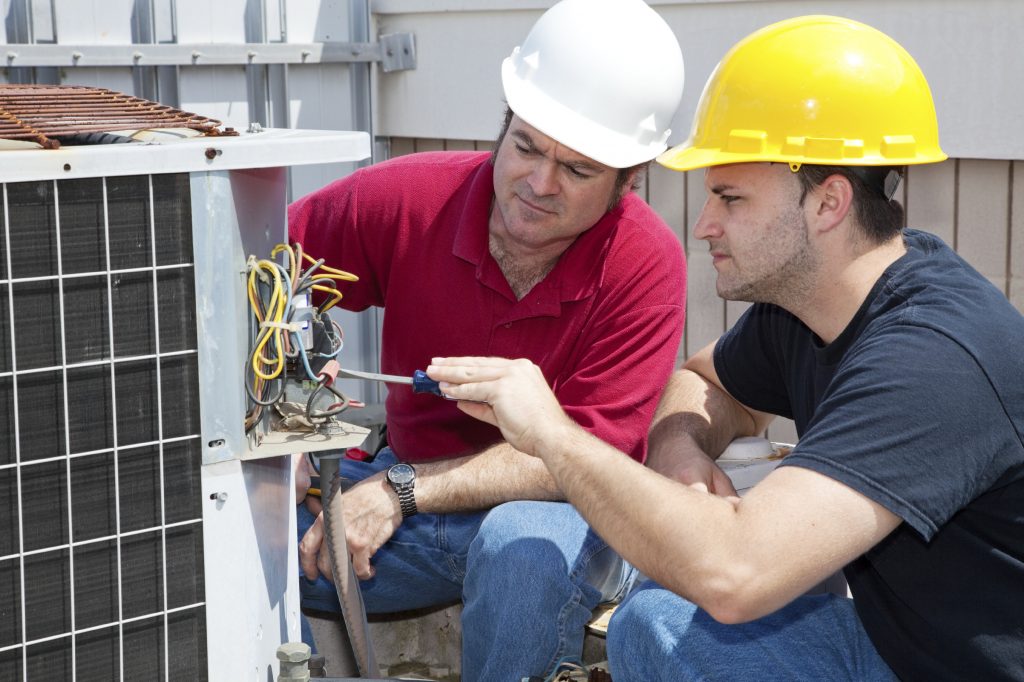
A major shortage of qualified HVAC mechanics and installers … and an endless number of contracting companies looking to fill jobs.
That’s a combination rarely found in any trade or industry, but that’s the current state of things in almost every major city in the U.S. HVAC contracting companies are hurting for talent as they bid jobs they don’t always have the manpower for, but that are just too lucrative to pass up. And service shops are running their lead guys ragged with more work than there are hours in the week to get it done.
The eating is good right now for tradesman in the industry, from the in-house engineers that maintain boilers in major building complexes to the service technicians in both the residential and commercial side of the industry to the installers taking advantage of one of the biggest construction booms the U.S. has ever seen. But they’re at capacity, and employers are desperate to build out their ranks with newbies that show potential.
This competition for talent can be your best friend when you have the training and credentials contractors need to see before putting you out on a job.
There are plenty of HVAC mechanics and contractors out there that got their start with a good shop right out of high school working their way up the career ladder, but these kinds of opportunities are more and more rare these days.
HVAC is a trade that incorporates technology on all sides, from the high-efficiency building automation systems standard in new construction to the diagnostic tools used to optimize and troubleshoot them. Without some technical training to get familiar with where the industry is and where it’s heading, you’re going to find yourself in over your head real quick.
HVAC training is by no means standardized. There are a couple well-established paths you can take to get into the trade: enroll in a technical school or try your luck trying to land a spot in an apprenticeship program.
But even these two paths can cross on occasion, with some technical schools actually partnering with trade associations to offer apprenticeship programs that simultaneously earn you an associate degree.
Is one better than another? That’s up for debate, and will likely depend on who you ask. A lot also depends on where you’re trying to go in your career and the credentialing requirements where you live.
Becoming an HVAC mechanic or installer isn’t something you can do by following a few easy steps that are exactly the same for everyone everywhere. Some things are universal, like holding EPA Section 608 certification, but plenty of other things are different depending on the state you work in and the side of the industry you’re trying to get into – residential, commercial/industrial, installation, service.
Formal training via apprenticeship or a technical/trade school program have become the two primary paths into the trade, but with the industry quickly becoming more high-tech, even many apprenticeship programs are leaning more toward applicants with some HVAC classes under their belt.
And if your goal is to work your way through the ranks to become a lead in your shop, and even eventually an independent licensed contractor and business owner, having that formal education will almost always get you there faster.
HVAC TECHNICAL SCHOOL PROGRAMS: COURSEWORK AND HANDS-ON TRAINING
You can graduate with an HVAC certificate or diploma in as little as a few months or an Associate of Applied Science (AAS) degree in about 18-24 months.
Including both classroom and hands-on training in HVAC theory, electronics, and the tools and practices of the trade, a comprehensive HVAC program will cover many aspects of AC, heating, and refrigeration diagnostics, installation, service, and maintenance.
Labs will allow you to work with actual furnaces and AC equipment, where you’ll gain experience in assembling, installing, troubleshooting, and repairing HVAC systems.
But you’ve got to know the ins and outs of HVAC systems and their components before you can start working on them, and coursework will bring you up to speed on everything from electrical theory to some of the newest green technologies. Leading schools also provide training in wifi-enabled thermostats and building automation systems and the latest in solar thermal, geo thermal, air and hot water zoning systems and equipment.
Some of the topics you can expect to cover in an HVAC program include:
- Installation and service procedures of residential and commercial heating and A/C
- Electrical controls and circuits, including the application of motor control circuits
- Basic principles of electricity
- Advanced troubleshooting, maintenance, and the repair of gas, fuel, oil, electric heating systems and geo-thermal heat pumps
- Air distribution, including fans, blowers, and dampers
- Design of duct systems
- Blueprint reading
It will always benefit you to look for a school that also offers courses in communications and business. Business writing, evaluating industry-related literature, and reading, writing, speaking, and listening skills are some of the topics covered in these courses.
Some community and state colleges even offer paid apprenticeship programs. These schools have partnership agreements with local apprenticeship sponsors who provide on-the-job training while you complete the related classroom instruction. Most of these programs take about 4 years to complete.








